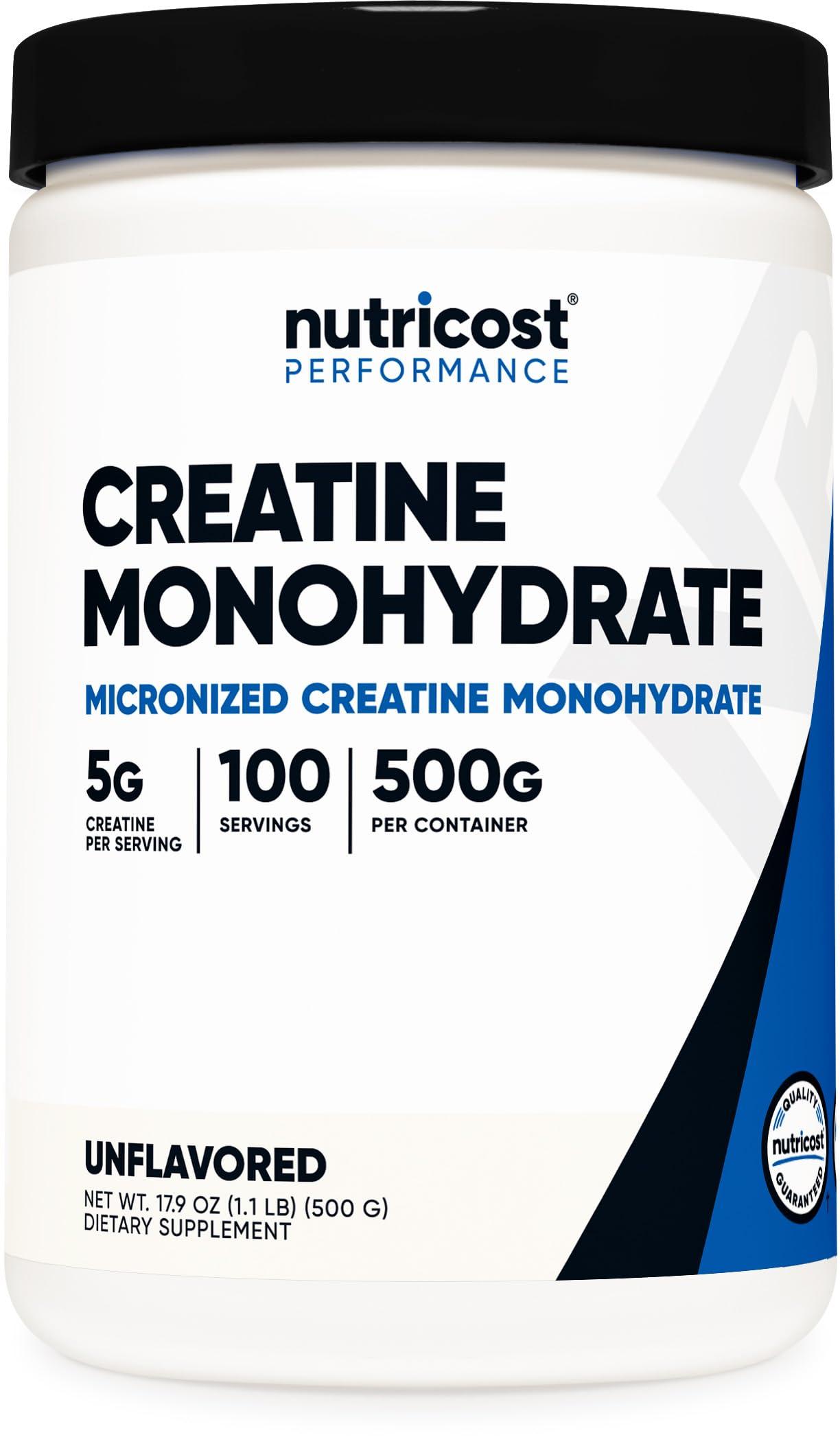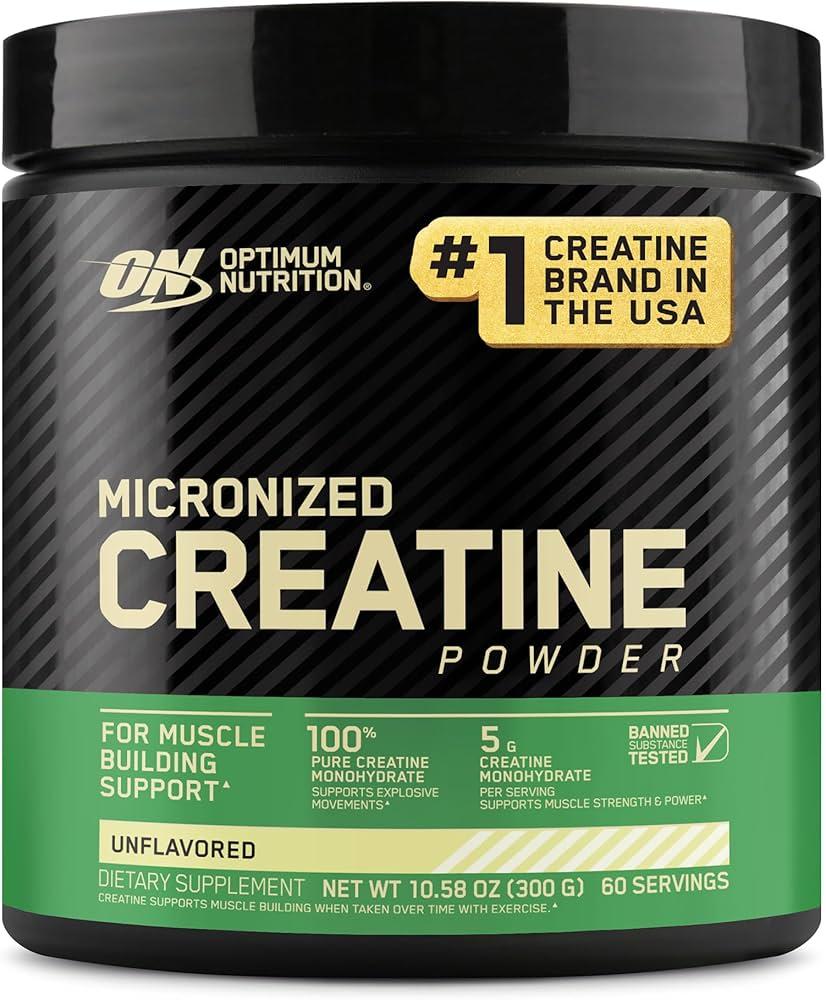In the realm of fitness and athletic performance, the pursuit of strength gains is a quest that countless enthusiasts embark upon. Among the myriad of supplements vying for attention, one stands tall as a perennial favorite: creatine monohydrate. Often heralded as a pre-workout powerhouse, this naturally occurring compound has carved out a reputation for its remarkable ability too enhance physical performance and boost muscle growth. As science continues to unravel the complexities of human physiology, creatine remains a focal point in the conversation about effective training strategies. In this article, we will delve into the engaging world of creatine monohydrate, exploring its benefits, mechanisms of action, and the impact it can have on your strength training regimen. Whether you are a seasoned lifter or a newcomer to the gym, understanding this powerhouse supplement could be the key to unlocking your true potential. Join us as we uncover the science behind creatine, and discover how it can transform your workouts and propel you toward your fitness goals.
The Science Behind Creatine Monohydrate and Its Impact on Muscle Performance
The effectiveness of creatine monohydrate in enhancing muscle performance can be traced back to its role in the body’s energy systems. When you engage in high-intensity exercises,your muscles primarily rely on adenosine triphosphate (ATP) for energy. However, ATP stores are limited and become depleted quickly, often within seconds of strenuous activity. this is where creatine comes into play: it facilitates the rapid regeneration of ATP by donating a phosphate group, thus replenishing energy stores and allowing you to sustain higher levels of performance during your workout. Research indicates that creatine supplementation may lead to increased strength, enhanced muscle endurance, and improved recovery times, making it a staple in any athlete’s regimen.
Furthermore, beyond its immediate benefits for energy production, creatine monohydrate has been linked to improved cellular hydration and an increase in muscle mass through various mechanisms, including increased protein synthesis. This occurs as creatine draws water into the muscle cells, which can trigger pathways aimed at muscle growth. Regular supplementation can result in notable gains in lean body mass and overall strength. The following points highlight the meaningful aspects of creatine’s impact on muscle performance:
- Enhanced ATP Regeneration: Allows for longer and more intense workout sessions.
- Increased Muscle Hydration: Promotes an anabolic environment.
- Faster Recovery: Reduces muscle soreness and accelerates recovery time.
- Boosted Strength Output: Facilitates heavier lifts and improved overall performance.

Unlocking the Benefits: How Creatine Supports Strength and Recovery
Creatine is often hailed as a cornerstone in the world of sports nutrition, especially for those pursuing strength gains. By enhancing the body’s ability to produce adenosine triphosphate (ATP), the primary energy currency of our cells, creatine considerably boosts explosive power and high-intensity performance. It’s particularly effective for activities that require rapid bursts of energy, such as weightlifting, sprinting, and various high-intensity interval training (HIIT) workouts.Regular supplementation can lead to increased muscle mass, improved training volume, and a noticeable enhancement in overall athletic performance.
In addition to its performance-boosting benefits, creatine also plays a crucial role in recovery. After an intense workout, muscles can suffer from damage and fatigue, requiring time to repair and rebuild. Creatine helps support this recovery process by:
- Reducing muscle cell damage: It aids in decreasing markers of exercise-induced muscle damage.
- Enhancing hydration: Creatine pulls water into muscle cells, perhaps aiding recovery and muscle growth.
- Improving muscle regeneration: It facilitates the repair of muscle fibers and supports protein synthesis.
When it comes to timing, taking creatine before or after workouts can yield positive outcomes. A consistent routine maximizes its benefits, allowing athletes to push their limits while ensuring their bodies recover more effectively. Here’s a swift comparison of creatine’s benefits:
| Benefit | Description |
|---|---|
| Energy Boost | increases ATP production for better performance |
| Muscle Growth | Promotes hypertrophy through enhanced workload |
| Recovery Enhancement | Supports faster muscle recovery post-exercise |

Optimal Dosage and Timing: Maximizing Your Pre-Workout Routine with creatine
To achieve the best results from your pre-workout routine with creatine,understanding the optimal dosage and timing is crucial. Research suggests that a daily intake of 3 to 5 grams is ideal for most individuals looking to enhance their strength gains. This dosage not only helps saturate your muscle creatine stores over time but also minimizes the potential for gastrointestinal discomfort that can arise from taking higher amounts. It’s essential to maintain consistency; therefore, integrating this supplementation into your daily routine, whether on training days or rest days, can maximize its effectiveness.
In terms of timing, pre-workout ingestion is favored for those aiming to boost energy levels and performance during workouts. Taking creatine approximately 30-60 minutes before exercise allows your body to utilize the supplement effectively. Alternatively, for those who prefer post-workout supplementation, doing so within 30 minutes after exercising can aid in recovery and muscle replenishment. Here’s a simple breakdown of effective timing strategies:
| Timing | Proposal |
|---|---|
| Pre-Workout | 30-60 minutes before |
| post-Workout | Within 30 minutes after |
| Daily Maintenance | Any consistent time |

Choosing the Right Creatine: A Guide to Quality and Purity in Supplements
When selecting a creatine supplement, quality and purity are paramount to ensure you receive the maximum benefits without compromising your health. Here are some crucial factors to consider:
- Type of Creatine: Opt for Creatine Monohydrate, as it’s the most researched and proven form.
- Third-party Testing: Choose brands that undergo self-reliant testing to verify quality and avoid contaminants.
- Manufacturing Standards: Look for supplements made in GMP-certified facilities to ensure good manufacturing practices.
to further simplify your decision, here’s a quick comparison of popular creatine options:
| Type | Benefits | Cost |
|---|---|---|
| Creatine Monohydrate | Enhances strength and muscle mass | Low |
| Creatine Ethyl Ester | Promotes faster absorption | Medium |
| Buffered Creatine | Reduced stomach discomfort | High |
The Way Forward
As we draw the curtain on our exploration of creatine monohydrate, it becomes evident that this unassuming compound holds the key to unlocking new vistas in strength training. With a rich tapestry of research and anecdotal evidence supporting its efficacy,creatine has rightfully earned its place as a staple in the arsenal of athletes and fitness enthusiasts alike. Whether you’re looking to enhance your performance on the field, lift heavier in the gym, or simply push your physical limits, incorporating creatine into your pre-workout routine may just be the game changer you need.
However, as with all supplements, it’s essential to approach creatine with a balanced perspective, considering your individual health and fitness goals.Always consult with a healthcare professional or nutritionist before embarking on any supplementation journey.The path to strength gains is as much about informed choices and consistency as it is indeed about the products you choose.
Embrace the power of creatine monohydrate,and may it propel you toward your fitness aspirations—one rep at a time. whatever your goals may be, remember that true progress comes from a combination of hard work, dedication, and the right support. here’s to your next workout—may it be stronger than the last!


